The article you’re reading comes from our archive. Please keep in mind that it might not fully reflect current views or trends.
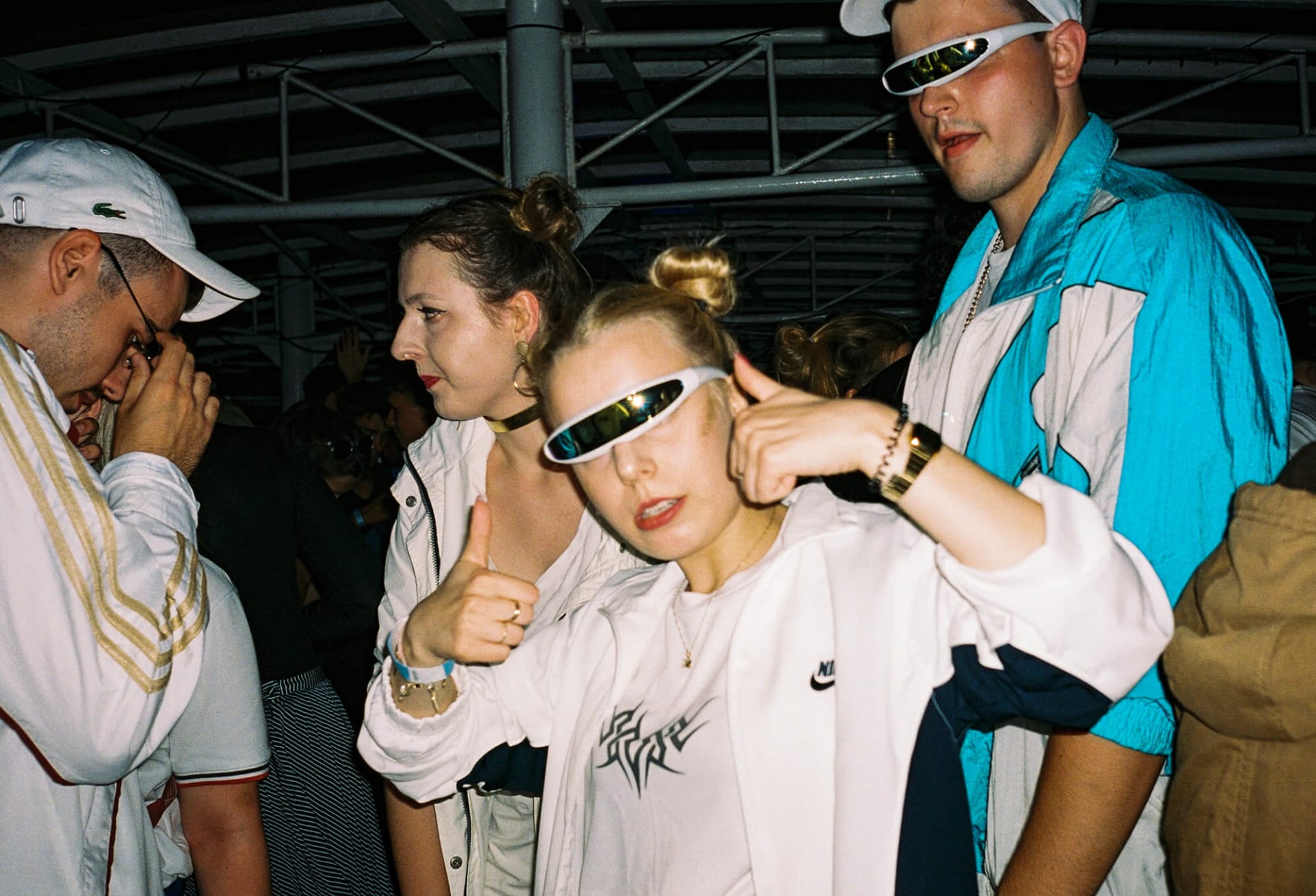
Raving At 200 BPM: Inside Poland’s Neo-Gabber Underground
The neo-gabber revival is here. A small network of party crews across Europe have returned to dance music’s hardest core in search of fresh inspiration and some kind of authentic underground experience. In 2014, Boiler Room hosted a special titled “It’s Not A Disgrace To Be A Gabber” that featured Paris’ Casual Gabberz crew. A similar current has emerged in Italy thanks to Milan’s Gabber Eleganza, which was tapped to provide music for Dior Homme’s “Hardior” menswear line. But the most progressive example of this movement took root further east, in Poland. Thanks to the efforts of a prankish traveling rave crew called WIXAPOL S.A., many young Polish clubbers are getting their first tastes of electronic dance music via the fluorescently pumped-up and sped-out sounds of hardstyle, gabber, hard bass and a new internet subgenre that translates into English as “popecore.”

It’s 4 AM, and about 500 kids in brightly colored retro Kappa and Adidas tracksuits are locked to the beat in an up-and-down stomp that defies conventional stamina. Their jerking movements and quick footwork is diced and distorted by harsh blasts of strobe and electrified laser buckshots. One girl in Oakleys is thrashing her beaded dreads in time to a hardstyle remix of Drowning Pool’s “Bodies”. The comically over-distorted kick drum causes a vague tingling sensation reminiscent of the numbing euphoria of nitrous oxide. Many parties, in Berlin in particular, are described in reverential tones as being cooly bacchanalian or sexually depraved. WIXAPOL is a different beast, a demented carnival-like race to intentional stupidfication beneath the banner of the crew’s omnipresent black and yellow icon: a smiley face with a tribal tramp stamp for eyes.
The first WIXAPOL was held in Warsaw in 2012. It was created by three friends who choose to remain anonymous behind their DJ aliases: DJ SPORTY SPICE, DJ TORRENTZ.EU and MIKOUAJ REJW. Though originally a Varsovian party, it’s since become a traveling entity with regular local editions in nearly every major city in Poland. A quick search of the hashtag #wixapol on Instagram or YouTube reveals why: Young Poles are crazy about WIXAPOL and identify with the party in a way that borders on obsessively tribal subcultural affiliation. There’s a unique fashion, a sound, a language and even specific dances that only seem to exist at WIXAPOL.
“The name is a word play inspired by the ‘90s decade,” says DJ TORRENTZ.EU. “The ‘wixa’ is Polish slang for ‘partying hard’. For me it’s like the Polish equivalent to ‘rave’. The ‘pol’ is because in the early days of Polish capitalism every guy was doing some company, and these companies had random names, but it was always, ‘something-pol’ for ‘Poland’. Like, some guy’s name was Mirek, and he’d call his company ‘Mirekpol’. So you get ‘WIXAPOL’.”

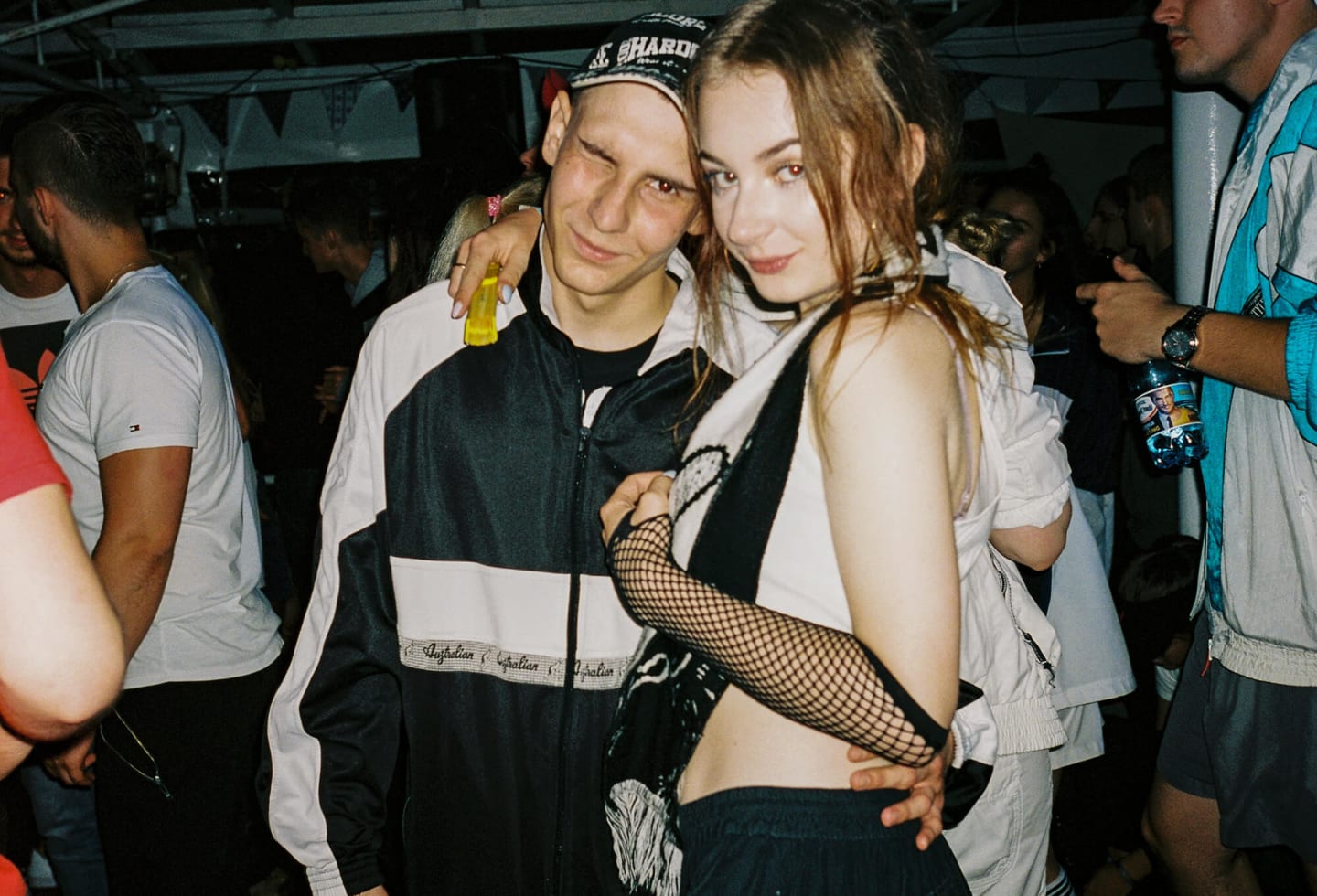
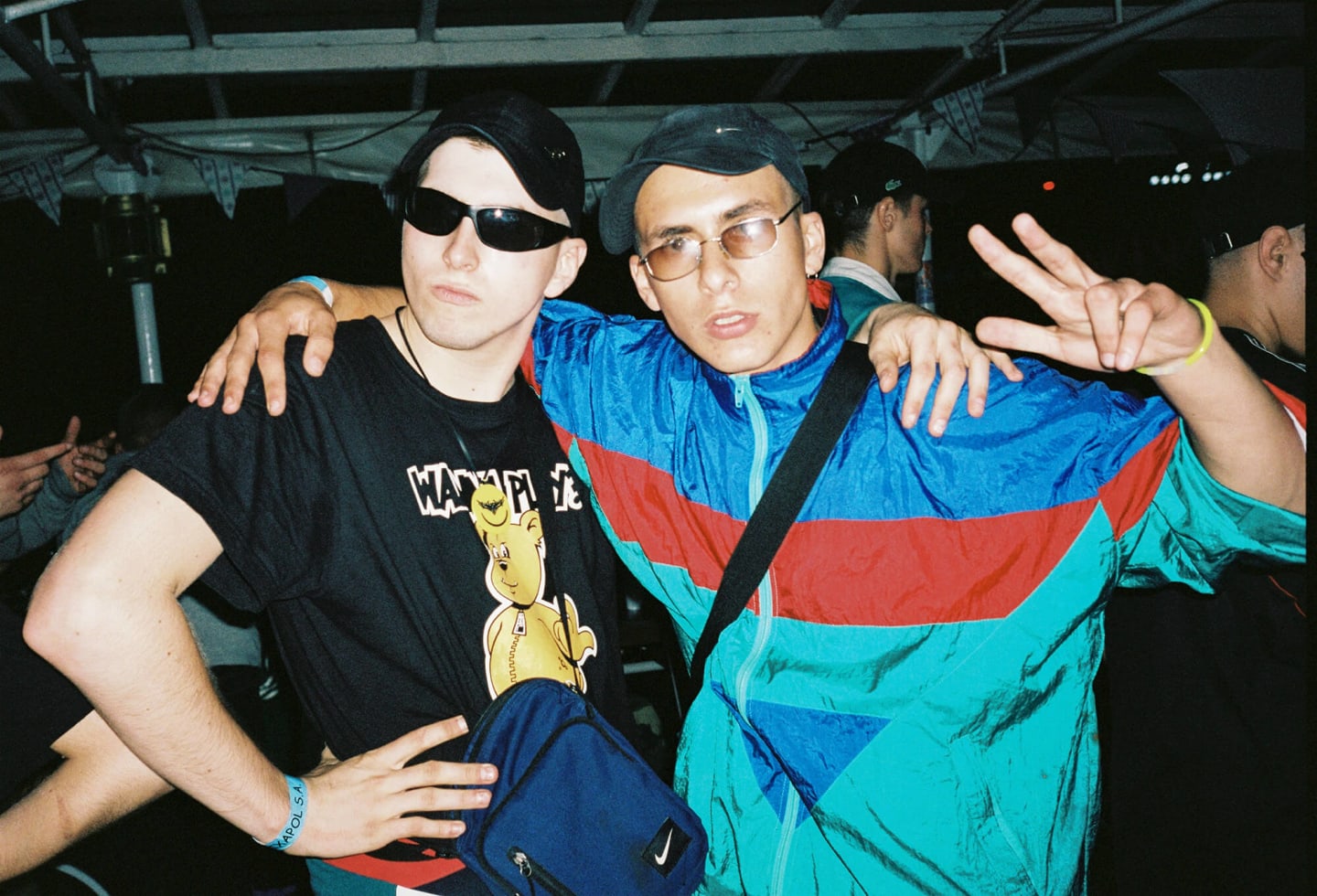
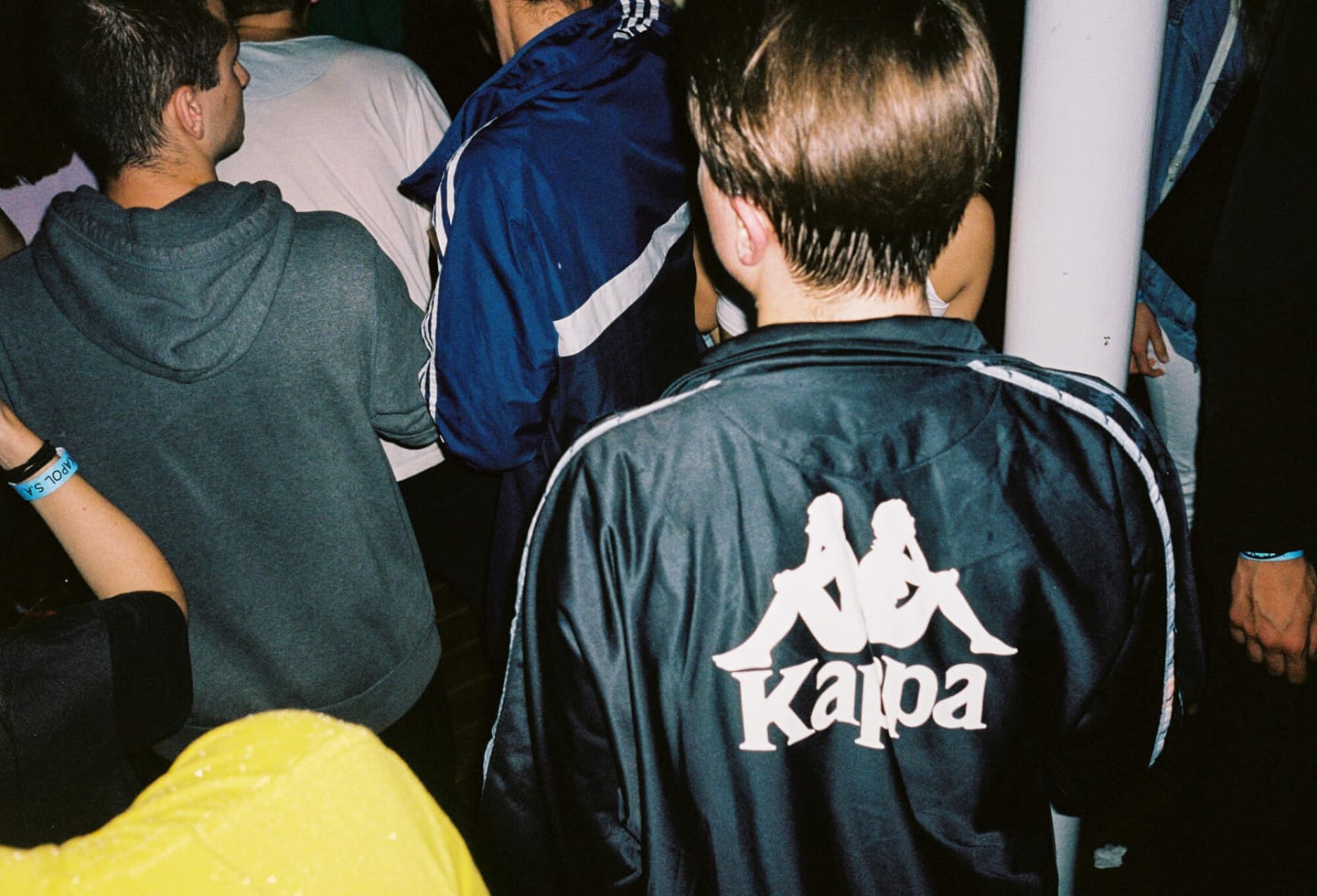
WIXAPOL’s social media presence is so strong that one dedicated fan created a “WIXOPEDIA” that automatically collects and organizes the memes, photos, videos and other assorted ephemera in one central location. “We are doing parties, but the fan page and our communication with fans is just as important,” TORRENTZ.EU explains. “We do a lot of memes, and our status updates are all written using a specific language with everything in caps-lock. It’s inspired by chan culture and meme language.”
The “chan culture” that he mentions is a reference to the unhinged troll internet subculture surrounding controversial websites like 4chan and 8chan. These message boards revolve around anonymously posted image content that includes everything from memes and porn to gore and anime. According to TORRENTZ.EU, “this manner of writing also refers to Polish people who make grammar mistakes because they’re angry or they’re on drugs—lots of exclamation marks and stuff.”
For example, the club’s biography on Resident Advisor is, “WILD AND PASSIONATE AVANTGARDE OF EASTERN RAVE REVIVAL, DEDICATED TO HARDEST AND FASTEST GENRES OF CLUB MUSIC. BRINGING VITAL ENERGY AND MADNESS INTO POLISH SCENE ({ ACCELERATE EVERYTHING }) !!!” And the group just recently made a Facebook profile overlay that says, “IT’S NICE TO BE IMPORTANT. BUT IT’S MORE IMPORTANT TO BE NICE!!!1”
Clearly, a big part of WIXAPOL’s appeal is its humor. Its irreverent approach to dance music feels fresh at a time when techno and house are treated with the same reverential tone as high culture. “Actually, WIXAPOL was created as a reaction to all that seriousness in the techno scene,” says DJ SPORTY SPICE. “For example, the description of those techno parties, they sound like it’s some kind of classical music in the philharmonic. But it’s a club event. People go there to get fucked up and dance.”
MIKOUAJ REJW agrees. From his perspective, the Polish electronic dance music scene was once associated with criminality, degenerates and satanism thanks to a media campaign from conservative elements and the Catholic church. “In the ‘90s, techno was a crappy thing for techno heads. Now it’s trying to be artsy,” he says. “Like, ‘We’re serious. We’re doing art stuff.’” It wasn’t until long after Poland joined the EU that people’s attitudes changed thanks to interaction with scenes in western European countries. Now techno has become a societally acceptable music of choice.



But to WIXAPOL, this change in attitude is “a perversion. You’re going to go to the club and get drunk or take drugs and be ridiculous, but at the same time feel better about yourself because it’s a ‘better type of party’, which is bullshit,” says DJ SPORTY SPICE. “You can’t categorize music in that way—especially club music. We were sick of that when we started, so we tried to do something completely different. We tried to do something raw, untasteful and ‘not good.’”
“We are into bad taste, bad stereotypes, bad aesthetics. Club music and techno in Poland had a very bad reputation for a long time, so we like to embrace everything. We’re post-shame.” adds DJ TORRENTZ.EU. This mentality also trickles into their merry prankster sense of humor. “Polish humor is dark,” he says. “Polish people have problems with political correctness because Polish people joke about everything: death, rape, the Holocaust…sometimes it can be offensive and problematic. But humor has been a way for Polish people to survive really difficult moments in history. It’s a psychic mechanism for dealing with difficult stuff.”
In some cases, WIXAPOL’s humor gets close to the politically incorrect edginess of 4chan and “dank” memes (think LOL Cats, but with jokes about autism and school shooters). Nowhere is this more evident than in the party’s fascination with Pope John Paul II. At a surface level, this manifests in the form of people sometimes wearing papal attire to the party. At a deeper level, John Paul II also occasionally appears in the party’s memes and messaging. There’s even a sub-genre called “papacore” that layers John Paul II samples over brutally noisy gabber beats and ludicrously cheesy hard bass plonks. This stems from Polish meme culture’s obsession with using John Paul II—a national hero who was the first pope from this historically Catholic country—as a vehicle of transgression.
There’s a whole popular meme format in Poland called “JP2GMD,” which loosely translates to “John Paul II rapes little children.” This meme references what is widely seen as the pope’s lack of adequate response to the many child abuse charges against the Catholic clergy around the world. DJ TORRENTZ.EU explains the appeal. “It’s a typical anarchic attitude troll thing. John Paul II is a national icon, but the younger guys don’t remember him, and their parents and schools are forcing them to respect this pope, but they don’t feel any connection to him, and they’re extremely sick of the empty cult surrounding this individual.”
A Google search for JP2GMD reveals tons of these irreverent memes. Some surreally depict John Paul II as a computer processor, insect dancing or as a giant throwing cream cakes at the World Trade Center. Others are even darker, like a picture of John Paul II with two kebab knives in a meat locker full of dead babies. Wixapol even created its own papacore-soundtracked video, featured below, that weighs in on the issue.
In many respects, WIXAPOL feels like a party created by trolls for trolls. This is to some extent a function of the music itself, which sounds aggressive and fun to insiders but abrasive and terrible to outsiders. TORRENTZ.EU says, “Hardcore and hardstyle are kinds of music that can be very annoying. It gives you the same pleasure as making your parents or neighbors annoyed. It’s a trolling pleasure like as in punk or any other counterculture.”
And he’s right. A recent event in Krakow was held on a boat next to a wedding reception. WIXAPOL’s wacky energy was amplified a few hundred degrees by an on-board Funktion-One sound system, which the crew used to power their YouTube rips and torrented MP3s. Standing from the shore, you could see two very different parties unfolding. On one boat: absolute savagery at 180BPM. On the other: a group of horrified normies awkwardly trying to dance to Bruno Mars.
The party’s humor hasn’t necessarily won it fans within what its DJs refer to as the “true school” community of existing gabber heads in Poland. “For some orthodox gabber and hardcore fans, it’s unacceptable that we play this papal donk music or anything different alongside gabber,” says MIKOUAJ REJW. “They think that hardcore can only be serious, and that we’re making some laughs about it.
“But in fact this music always had a sense of humor. It was very eclectic and diverse from the beginning,” DJ TORRENTZ.EU points out. Nevertheless, their unique approach has won some support with similarly minded figures from the old-school. New York hardcore camp legend The Horrorist and Abraxas of seminal ‘90s Dutch outfit Party Animals, who famously created a gabber remix of “Hava Naquila”, both played at WIXAPOL last year.
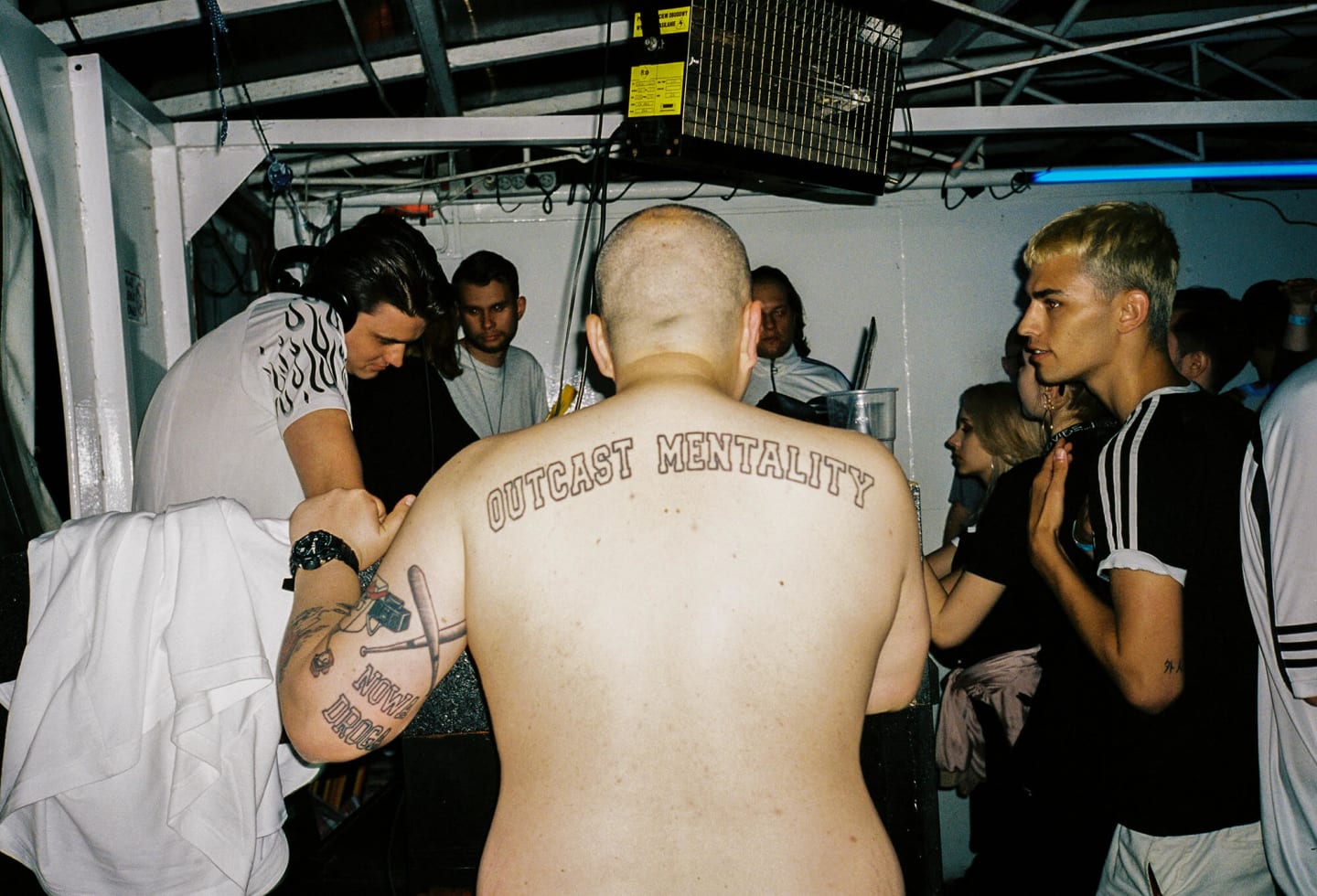
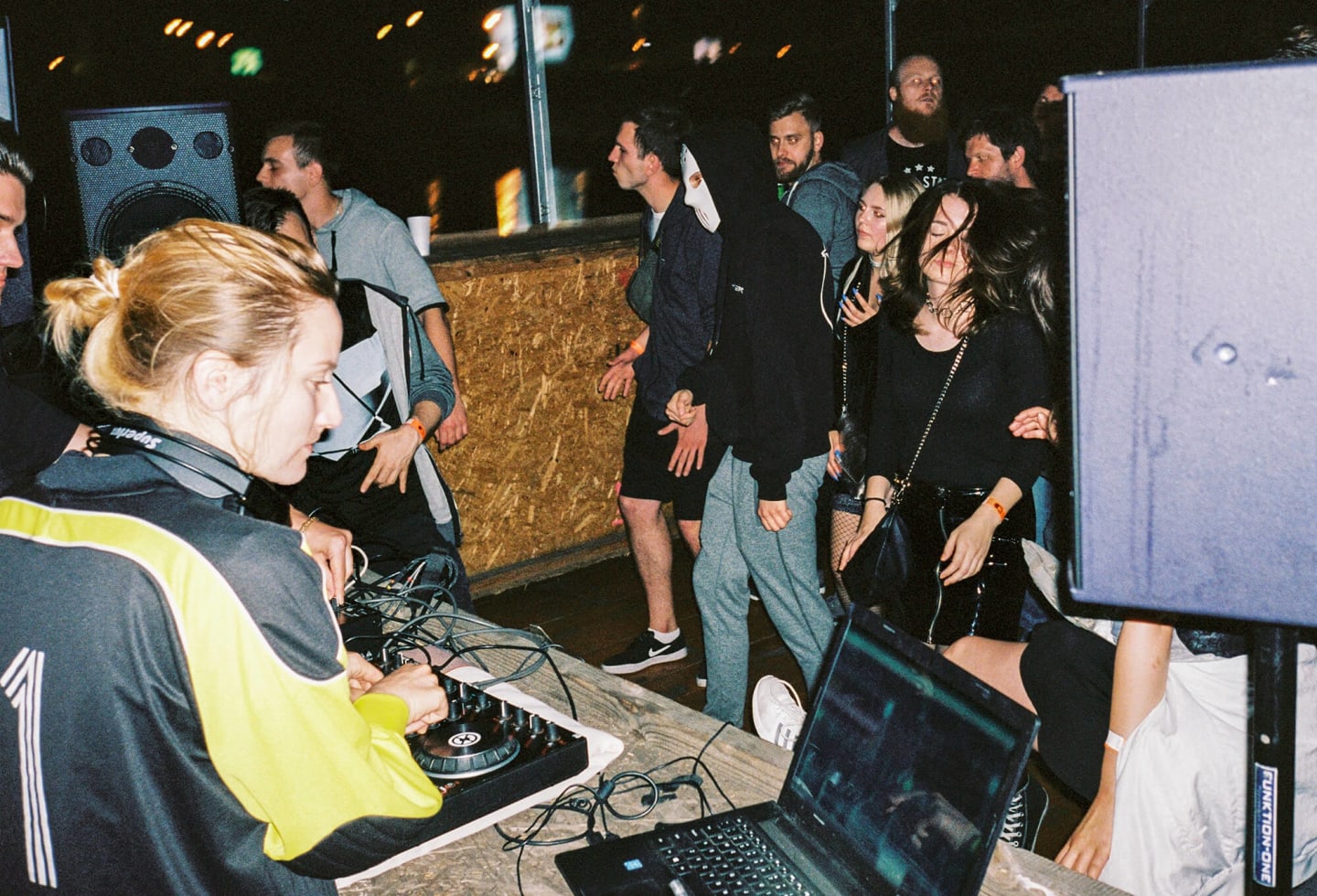
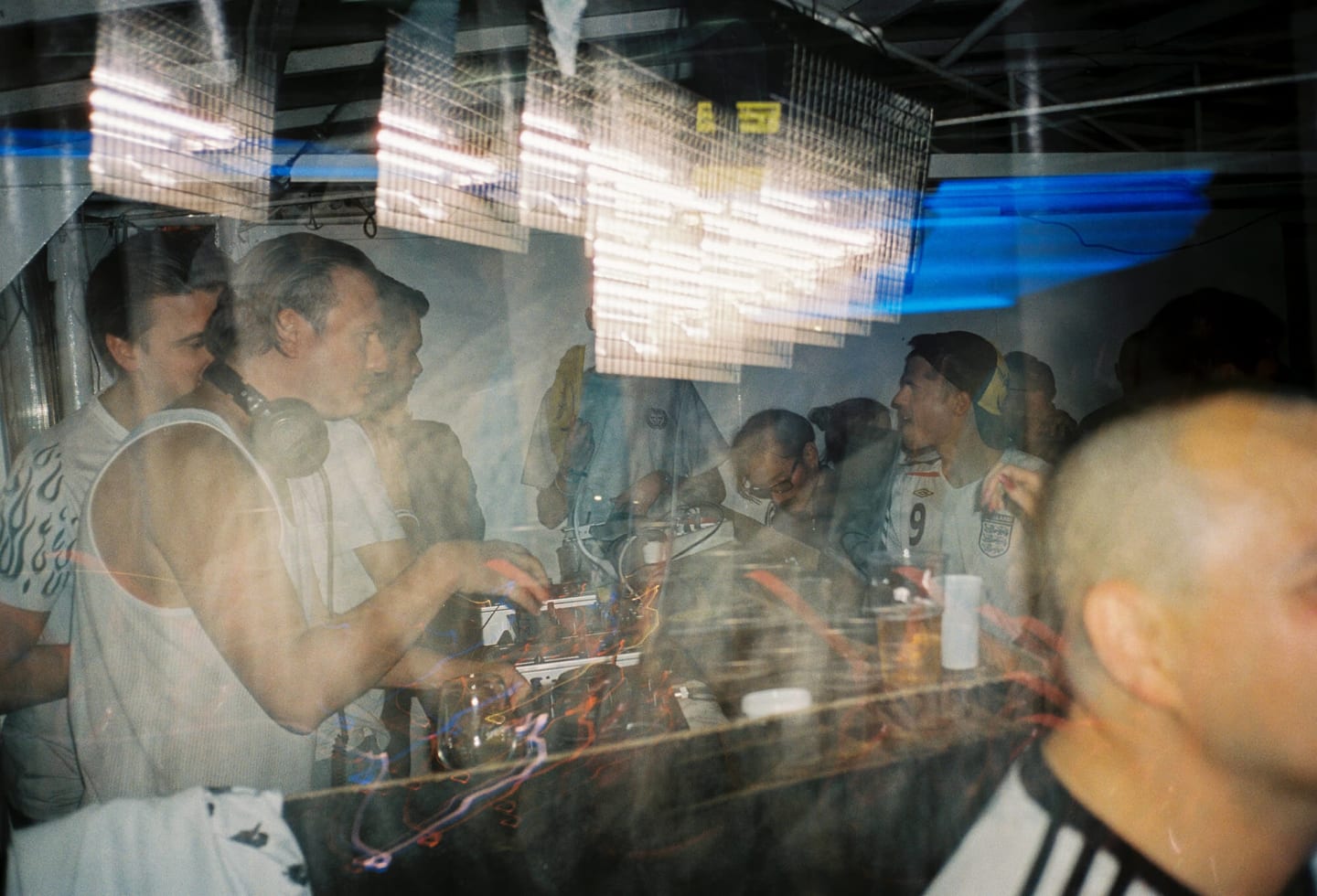
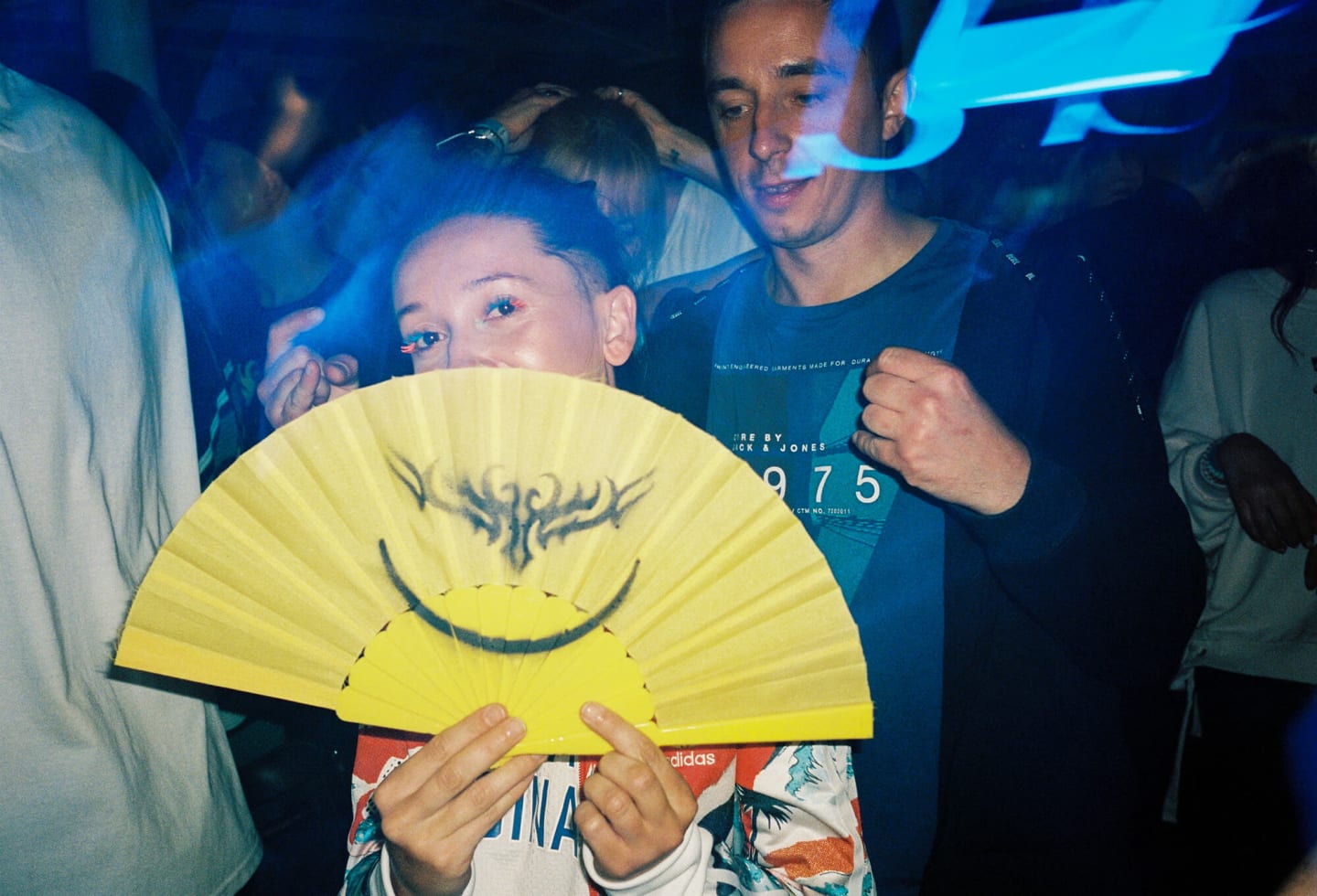
This clash with the local orthodox goes beyond humor and extends into the way the party approaches its musical selection. Unlike other explicitly gabber-centric parties, WIXAPOL’s typical playlist cycles through the whole universe of fast and hard subgenres. “We are very hard for these older people to understand. They’re like, ‘What the fuck! Why are you mixing this good music with this shit!” says MIKOUAJ REJW. A night at WIXAPOL is like one big overwhelming grab-bag of donking basslines, absurd tempos, chugging 909 kicks that sound like barking dogs from hell, Polish sing-a-long choruses, nu-metal covers, Pope John Paul II samples, panic-inducing hardstyle stabs, a trance breakdown or two and the occasional guy screaming “HARDCORE!”. Of the three parties I attended, one of the standout moments came when DJ SPORTY SPICE summoned a mosh pit by playing Dutch hardcore godfather Paul Elstak’s gabber remix of Sham 69’s “If The Kids Are United”.
One thing that is especially impressive about WIXAPOL is just how obsessive its fans are. DJ SPORTY SPICE explains, “WIXAPOL is not a DJ collective. WIXAPOL is a movement. Everyone who comes to WIXAPOL is a part of WIXAPOL. And the people then feel they represent this idea.” The kids who go to this party dress and act the part. For many of them, WIXAPOL is their first entrance into any kind of electronic dance music whatsoever. At the party, there’s a feeling of youthful enthusiasm that electrifies the atmosphere. They’re passionate about gabber culture and hardstyle, and their interest is fueled by the novelty of the party as well as old YouTube videos of legendary gabber events in the Netherlands, like the massive Thunderdome parties. “These are young people who are inspired by historic videos from gabber parties and raves on the internet, and they want to experience similar stuff. They want to experience crazy experiences,” says DJ TORRENTZ.EU.
It’s hard to shake the feeling of actually walking inside of one of those retro videos when at WIXAPOL. The dances, the fashion and the atmosphere are all weirdly familiar, even though the initial moment for this sound has long since passed. It’s another facet of the party’s indebtedness to the internet in that it perpetuates the inspiration and fulfillment of nostalgia in real time. In this way, it’s not a retro party, despite its reference of gabber culture (beyond that much of the music it plays comes from contemporary hardstyle and hardcore).
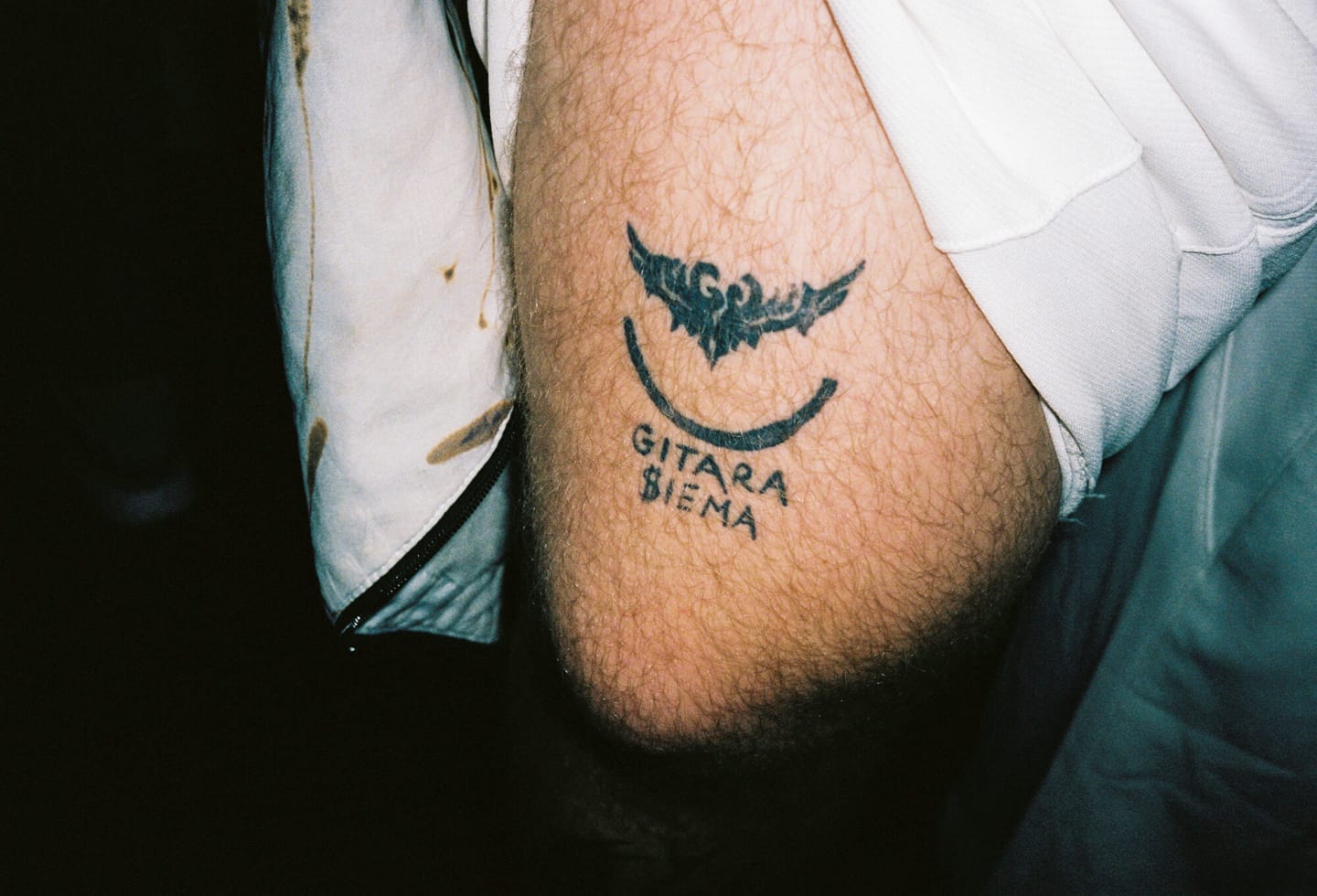

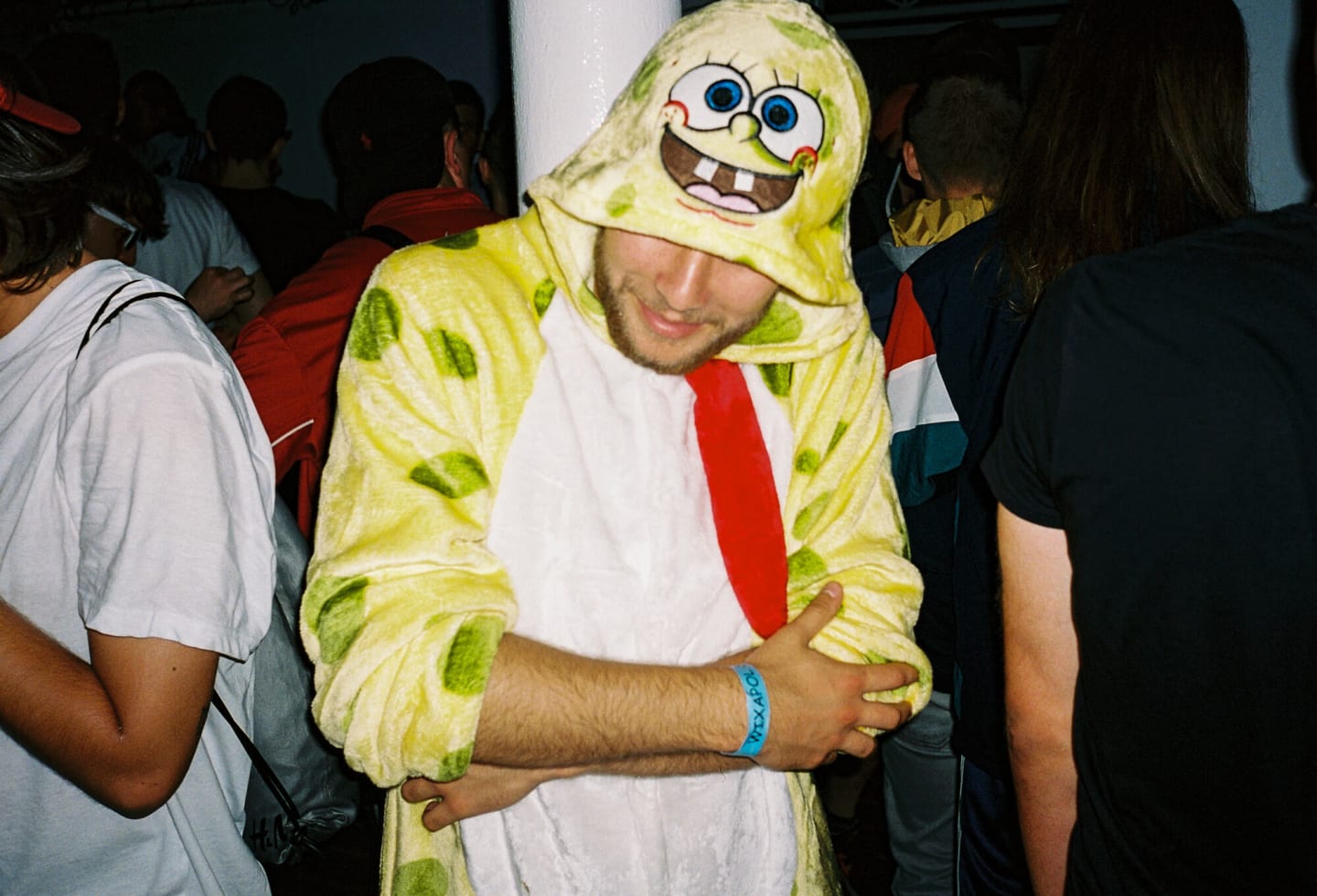
Important to the sense of belonging is WIXAPOL’s merchandise, which seemingly plays on Poland’s hypercapitalist position. The full name of the party is Wixapol S.A., which suffix is like a GmbH or LLC. The crew sells embroidered t-shirts, laser-etched necklaces, 3D printed pendants, spray painted rave fans and football hooligan scarves emblazoned with the party’s logo. They’ve even had professional tattoo stands at a few parties, so multiple people now have WIXAPOL tattoos. Through this, the logo has become a meme in its own right. On Instagram and Facebook, you can sometimes find it displayed in emoji shorthand as “})”.
The tribal tattoo and the ubiquitous track suits call to mind a certain working class subculture referred to as “dresiarze”, which has its roots in the word “to dress”, but which refers specifically to track suits. This Polish subculture is the local equivalent to British chavs or Russian gopniks. “Every country in Europe has this group. Sometimes it’s named, sometimes it’s not. But in the ‘90s these guys were tied to the techno scene. The tattoos were also a part of this working class culture. They look really aggressive,” DJ TORRENTZ.EU explains. Like all good trolls, WIXAPOL can be hard to read sometimes. “We use confusing aesthetics for good reasons,” he says, laughing.
Those good reasons aren’t necessarily overtly political, but more societal. WIXAPOL is in an unusual position in that it’s an extremely popular party that celebrates working class culture in a deeply conservative country split into two distinct economic zones: The “Poland A” of the cities and the “Poland B” of the rural countryside. “We try to bring people together,” says MIKOUAJ REJW, “to show them that they can be together. You can’t say to someone that they’re wrong necessarily; that won’t work.”
DJ TORRENTZ.EU adds, “For example, we can bring together football hooligans and LGBT people and have them dance together to the same music and have fun at the same party. It can be their first common denominator. People are very separated politically in Poland, so I think that’s a step forward.”
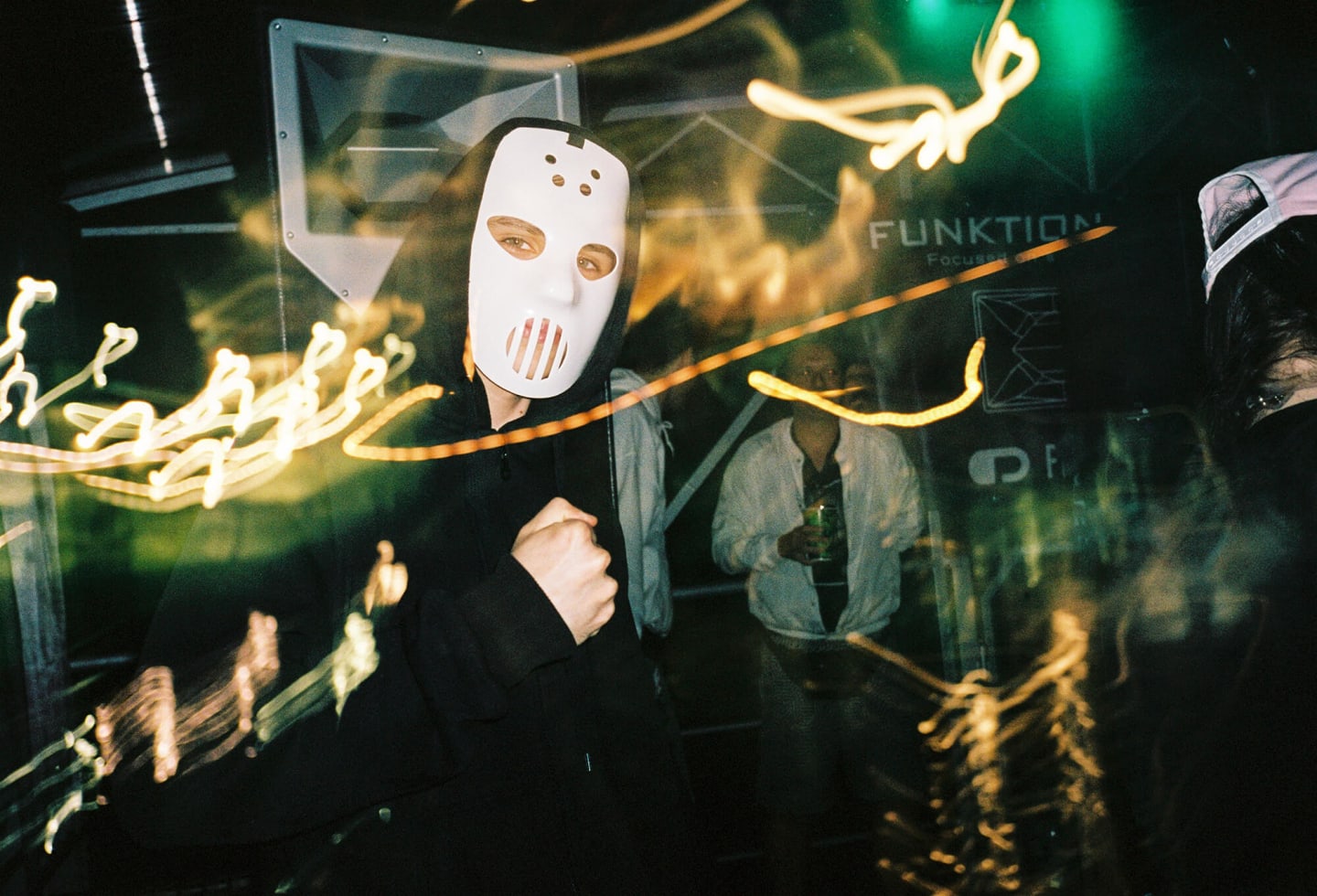
See more photos from Elizabeth Claire Herring on Instagram and find more photos from the Polish underground here.
Read more: Inside Brutaz, the Warsaw party challenging Polish nightlife
